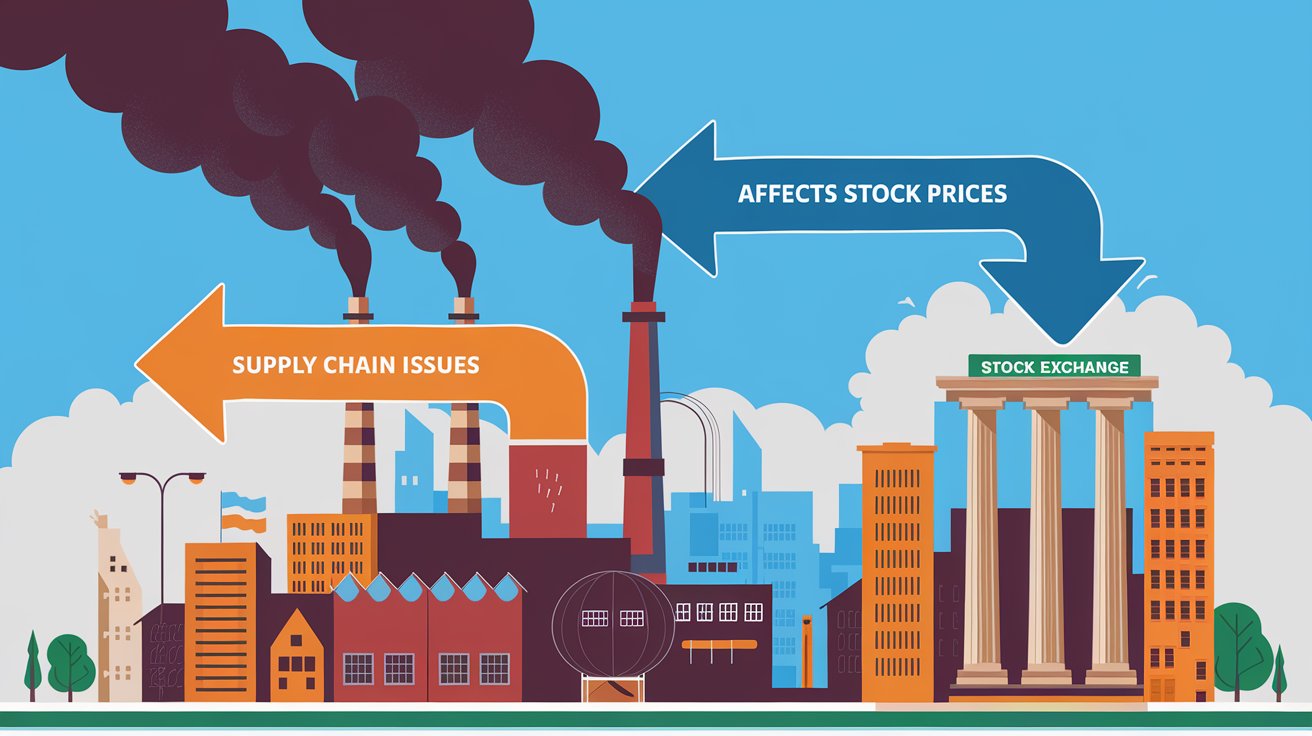How Supply Chain Issues Affect Stock Prices

Introduction
Have you ever wondered how supply chain hiccups can shake up stock prices? The supply chain is the backbone of our modern economy, connecting businesses, suppliers, and customers. When this intricate system falters, it sends ripples through industries, ultimately impacting stock prices. Let’s break down how and why this happens.
Understanding Supply Chain Basics
What Is a Supply Chain?
The supply chain is a network of suppliers, manufacturers, distributors, and retailers that work together to deliver products to consumers. Think of it as a relay race, where each handoff needs to happen smoothly for the final product to reach the finish line.
Key Components of a Supply Chain
- Suppliers – Provide raw materials or parts.
- Manufacturers – Turn materials into finished goods.
- Distributors – Store and transport products.
- Retailers – Sell to the end customer.
The Role of Supply Chains in Business Operations
A well-functioning supply chain ensures businesses can deliver products on time, maintain customer satisfaction, and control costs. Any disruption can throw a wrench in these operations, affecting the company’s performance and, by extension, its stock value.
How Supply Chain Disruptions Occur
Supply chain issues can arise from various causes, including:
- Natural Disasters – Hurricanes, earthquakes, or floods can halt production.
- Geopolitical Tensions – Trade wars or sanctions disrupt international supply routes.
- Labor Strikes – Workforce disruptions delay shipments and manufacturing.
Impact of Supply Chain Issues on Companies
When supply chain problems arise, businesses face:
- Higher Operational Costs – Sourcing alternatives is often expensive.
- Production Delays – Unavailability of parts leads to slower output.
- Damaged Reputation – Failing to deliver products can tarnish a brand.
Supply Chain Issues and Stock Prices
Supply chain disruptions often lead to decreased profits and missed earnings expectations, which spook investors. For instance, if a car manufacturer delays delivering vehicles due to a chip shortage, its stock price might take a hit. Stock markets, being reactive, quickly reflect these challenges.
Industries Most Affected by Supply Chain Issues
Certain industries are more vulnerable, such as:
- Manufacturing – Heavy reliance on raw materials.
- Retail and E-Commerce – Fast-moving goods demand seamless logistics.
- Automotive Industry – Complex supply chains with numerous parts.
Case Studies of Supply Chain Disruptions
- Chip Shortages – The global semiconductor shortage caused delays in car production and reduced tech gadget availability, impacting companies like Ford and Apple.
- Pandemic-Related Disruptions – COVID-19 exposed vulnerabilities in supply chains, leading to stock market volatility.
Globalization and Supply Chain Risks
While globalization has allowed businesses to expand and access cheaper goods, it has also increased reliance on international suppliers, making them more susceptible to geopolitical or logistical issues.
Strategies Companies Use to Mitigate Supply Chain Issues
To counter these risks, companies:
- Diversify Suppliers – Rely on multiple sources to reduce dependence.
- Invest in Technology – Use AI and predictive analytics for smarter forecasting.
The Role of Technology in Supply Chain Management
Technology is a game-changer in supply chain management. For instance:
- AI helps predict demand and identify potential disruptions.
- Blockchain ensures transparency, improving trust and traceability.
How Investors Can Respond to Supply Chain Issues
For investors, staying informed is key. Diversifying portfolios, keeping an eye on industry trends, and being aware of company-specific risks can help mitigate losses.
The Future of Supply Chains
The supply chain of tomorrow will likely prioritize:
- Sustainability – Eco-friendly practices are gaining traction.
- Regionalization – Companies are moving production closer to home to minimize risks.
Lessons from Past Supply Chain Crises
If history has taught us anything, it’s that adaptability is vital. Businesses that anticipate risks and invest in robust systems tend to weather the storm better.
Conclusion
Supply chain issues are more than logistical challenges; they’re critical economic factors that can sway stock prices. Whether you’re a business owner or an investor, understanding these dynamics is crucial for navigating today’s interconnected world.
FAQs
- How can companies predict supply chain disruptions?
By using AI-driven analytics and monitoring global trends. - What is the link between globalization and supply chain issues?
Globalization increases interdependence, making disruptions more widespread. - Why do some industries get affected more than others?
Industries reliant on complex or global supply chains, like automotive or tech, are more vulnerable. - How can individual investors protect themselves?
Diversify investments and keep an eye on industries with recurring supply chain challenges. - What is the future of supply chains in the global economy?
Sustainability and regionalization are expected to reshape supply chain strategies.














Post Comment